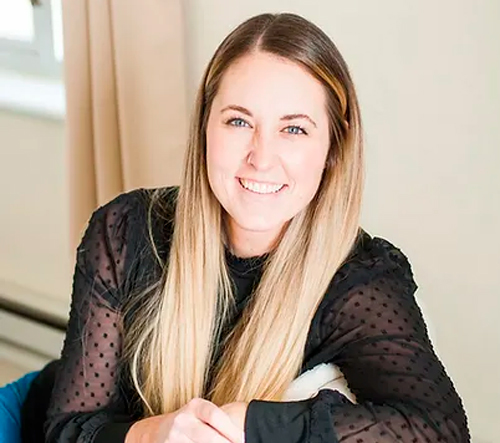Counseling and Neurofeedback for Attachment & Relationship Patterns in Denver, Colorado
(If these sound familiar, you’re not alone—and there are clear, evidence-based ways to change these patterns.)
Attachment patterns are learned—often early—and they’re changeable. Maybe anxiety pulls you to overfunction and chase closeness, or avoidance has you keeping distance to feel safe. Maybe you switch between the two, especially when stressed. These strategies once protected you; now they may be costing you intimacy, steadiness, and self-respect.
Therapy gives you a calm, accepting space to understand your style, soothe the nervous system, and practice new ways of relating—so you can date with clarity, set healthy boundaries, and build secure relationships over time. When talk therapy isn’t enough, we can integrate qEEG-informed neurofeedback to support regulation and flexibility.
A Strength-Based Approach to Anxiety Therapy in Denver
You are not your anxiety. Many clients bring care, courage, and high standards—we help you channel those strengths without the burnout.
Name your style (secure, anxious, avoidant, disorganized) and map triggers, protest behaviors, and repair strategies.
Identify raw spots, de-escalate cycles, and build safe connections.
Challenge abandonment/defectiveness schemas; replace black-and-white thinking.
Clarify values, set and hold limits without collapsing into guilt or distance.
Work compassionately with protective parts and attachment injuries.
Down-regulate reactivity; increase interoception so you can respond rather than react.
Communication frameworks, conflict repair, and anti-“pursue/withdraw” protocols.
Provides a non-invasive picture of over/under-activation patterns that may track with reactivity, rumination, or shutdown.
Trains more regulated brain activity to support flexibility, emotional balance, and secure relating.
Our Denver team is composed of master’s-level, licensed clinicians (e.g., LPC, LPCC) trained in attachment-informed therapy, EFT/couples work, and brain-based treatments when appropriate. Expect an accepting environment, clear education about your attachment style, and a step-by-step plan with measurable goals.


Talk with a licensed clinician about your patterns, goals, and best-fit options (individual therapy, couples work, neurofeedback, brain mapping—or a combined plan).
Build practical skills for secure relating: regulation, boundaries, communication, and repair—plus neurofeedback when helpful.
We’ll monitor changes you can feel and see—fewer spirals and protest behaviors, clearer boundaries, steadier connection, and more confidence in dating and relationships.
If you have signs of medical instability (fainting, chest pain, very low heart rate, vomiting blood) call 911 or go to the nearest emergency department. If you’re experiencing thoughts of harming yourself, call or text 988 (U.S.).
Select what you’re looking for:
Select what you’re looking for:

I support adults and teens (15+) who are ready to find relief from trauma, anxiety, depression, or feeling stuck in life, career, or identity transitions. Using a compassionate, trauma-informed, and integrative approach, I help clients reconnect with themselves and move toward balance and resilience. I’m EMDR-trained and draw from person-centered, gestalt, DBT, and somatic practices. Whether we’re working with the nervous system, processing painful memories, or exploring patterns with curiosity, my goal is to create a safe, collaborative space where you feel supported, present, and empowered to grow. I especially enjoy working with athletes, creative people, students, and outdoor adventurers who value resilience, beauty, and balance. Alongside therapy and grounding practices, I also offer neurofeedback as another powerful pathway for nervous system regulation and healing. Outside the office, you’ll often find me climbing, fly fishing, running trails, foraging, or relaxing in the grass under the aspens. My love for movement, play, and nature continually inspires how I show up with clients.

I specialize in working with women in their 20s to 50s who struggle with self-worth, self-esteem, and the guilt that often comes with prioritizing themselves. Finding self-trust and the ability to feel worthy of happiness are common topics in my work. My clients tend to put off therapy because they downplay their struggles, describing their pain as ‘not that big of a deal.’ Many of them grew up in households where expressing emotions wasn’t encouraged and they are still looking for security now. My goal is to create a space where you feel completely free to be yourself—no pressure, no expectations. Therapy with me isn’t about either of us being ‘perfect’—it’s more about you feeling safe, seen, and supported as you figure things out in a way that works for you. I prioritize meaningful conversations that get to the heart of the issue, getting to the root and out of surface level conversation quickly. Going through my own therapy has given me a deeper understanding of what it’s like to be in the client’s seat, and it’s made me even more passionate about helping others find the support that truly works for them. My clients describe me as focused, compassionate, nonjudgmental, and down-to-earth. I truly love what I do and that comes through in my work! I’m a person-centered therapist, but I often integrate elements of Motivational Interviewing, CBT, and IFS.

Pauly is a Colorado native who received his MA in Clinical Mental Health Counseling at Regis University, and is a current doctoral candidate for a PhD in Clinical Psychology program at Fielding Graduate University. Pauly is an empathetic counselor who believes in a compassionate, yet direct approach to therapy. Pauly believes his clients are the experts of their experience. Through a collaborative lens, clients who work with Pauly are able to gain meaningful insight into their experience which in-turn provides the essential resources for navigating change and/or healing emotional wounds. Pauly utilizes an integrated trauma-informed lens blended with evidence-based modalities including ACT, CBT, EFT, and more. Pauly specializes in working with adult individuals and couples, with several years of experience working directly with a broad range of presenting challenges including relationship challenges, PTSD & complex trauma, substance use disorders, mood disorders, personality disorders, and more. More importantly, Pauly believes in building a safe space in which each and every one of his clients feels seen & heard. Pauly identifies as a Latino-American, and is passionate about conducting therapy utilizing a social justice & diversity-informed lens. Pauly has a strong background working with multicultural identities, and believes in the importance of recognizing our unique differences. Pauly loves staying active through basketball, tennis, volleyball, hiking, dancing, strength training, and more. Additionally, Pauly spends time actively engaging in ongoing research projects in trauma, social justice, and neuropsychology.

Brianna believes in a holistic approach to counseling, integrating mind, body, and spirit in her work with clients. She strives to help clients weave the various aspects of their lives together through a collaborative approach, meeting her clients where they’re at and partnering with them to create lasting change and a greater sense of wholeness in their lives. Brianna seeks to create a grounding and non-judgmental space where clients can explore their thoughts, emotions, and experiences with freedom and authenticity. She embraces a variety of evidence-based treatment modalities to best meet her clients’ specific needs and goals, such as trauma-informed CBT, DBT, mindfulness-based techniques, solution-focused therapy, emotion-focused therapy, and humanistic approaches. In her work with couples, Brianna focuses on helping partners improve communication, strengthen their emotional connection, and navigate challenges such as conflict resolution, intimacy issues, and life transitions. She believes that life-giving, functioning relationships are foundational to a person’s sense of well-being. Brianna is certified in facilitating both SYMBIS and Prepare-Enrich couples counseling sessions. In her free time, she can often be found adventuring outside with her husband and pup, hosting a game night, or enjoying time with community.